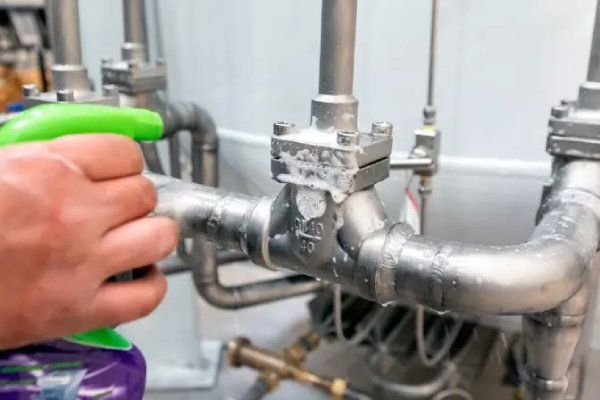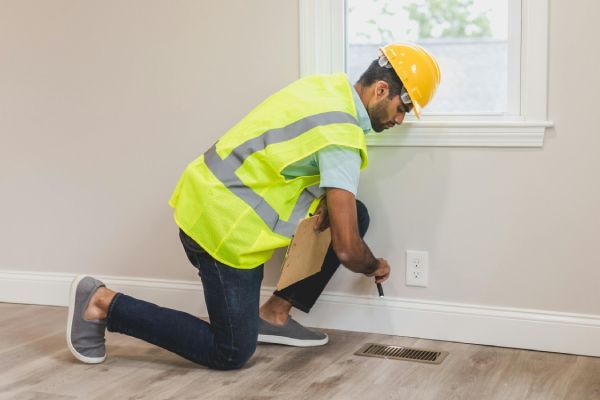Master Plumbers Blog
Gas Fitting Maintenance: Tips for Homeowners to Ensure Longevity and Efficiency
Natural gas plays a huge role in many residential properties in New Zealand, including Dunedin. When used properly, this fossil fuel makes it easier for people to cook their meals, heat their homes, and run appliances—like water heaters and clothes dryers—without the risk of causing a fire. However, no matter how careful you are with using natural gas, gas-related issues can still arise without warning.
For instance, gas leaks can often go unnoticed, especially when they’re relatively small. They can be caused by a variety of factors, from faulty appliances to broken gas lines due to natural causes like earthquakes and floods. This makes it challenging to find the exact source of the problem—which is less than ideal because gas leaks can cause indoor air pollution and thus cause health issues.

How to Tell If There’s a Gas Leak at Home
There are plenty of tell-tale signs that suggest your home has a gas leak. Contact a
Dunedin plumbing specialist if you detect any of the following symptoms so that they can handle the leak quickly and safely:
Strong Smell of Sulphur or Rotten Eggs
One of the most common indicators of a gas leak is the presence of a strong odour resembling sulphur or rotten eggs. Do note that natural gas is odourless in its pure form and the distinctive smell comes from mercaptan. This is a harmless chemical that has a highly recognisable, sulphur-like smell, which gas companies add to their gas to help people detect a leak.
Unhealthy or Dead Houseplants
If you notice that your indoor plants are wilting, turning yellow, or dying with no apparent reason, it could be a sign of a gas leak. Natural gas displaces oxygen in the air, which can suffocate plants and inhibit their ability to photosynthesise.
Hissing or Whistling Near a Gas Line
Another indication of a gas leak is the presence of unusual sounds, such as hissing or whistling, near a gas line. This could occur inside or outside your home and may indicate gas escaping from a pipe or connection.
Discoloured Flames
Gas appliances such as stoves, water heaters, and boilers typically produce blue flames when operating correctly. However, if you notice flickering flames coloured yellow or orange instead of a steady blue, it could be a sign of a gas leak or combustion problem. Discoloured flames may indicate incomplete combustion due to a lack of oxygen, which can result from a gas leak interfering with the appliance's operation.
Air Bubbles in Standing Water
Air bubbles appearing in standing water, such as puddles on the ground or water collected in sinks, can be a subtle yet significant indication of a gas leak. Gas escaping from underground pipelines can rise to the surface, creating bubbles as it moves through the water. If you notice unexplained air bubbles in standing water around your property, particularly in areas where gas lines are located, it's essential to investigate further and take appropriate precautions to address any potential gas leaks.
Increase in Gas Bill
If you notice an increase in your gas bill, even if your usage remains more or less the same, it could be a sign of a gas leak. This is because gas leaks can cause appliances to work harder to maintain the desired temperature or pressure, leading to higher consumption. Make it a habit to monitor your gas usage regularly and compare it to previous bills so that you can detect any unusual spikes.
Symptoms of Gas Poisoning
Prolonged exposure to natural gas puts you at risk of gas poisoning, which can be fatal if there are high concentrations of natural gas in an indoor space. Symptoms of natural gas poisoning may vary, but the most common ones include headaches, dizziness or light-headedness, nausea or vomiting, fatigue or weakness, chest pain, and confusion or disorientation.

What to Do If You Suspect a Gas Leak
If you or anyone in your household notices these symptoms and suspects a gas leak, it’s crucial to call your local plumbers ASAP so that they can assess the situation and take appropriate action. When dealing with gas leaks, it’s best to let the experts handle the repairs to ensure that the problem is dealt with properly and minimises damage.
Apart from calling the plumbers, you should also do the following:
Shut Off the Main Gas Supply
Shutting off the main gas supply to your home can help prevent further leakage and minimise the risk of an explosion. However, only attempt to shut off the gas supply if you can do so safely. If you are unsure or unable to do this yourself, leave it to trained professionals to handle.
Leave the Premises Quickly
If you suspect a gas leak in your home, it's essential to evacuate the premises immediately and move to a safe location. Make sure to leave all doors and windows open as you exit to allow the gas to disperse. Moreover, do not use any electronic devices or appliances, including light switches or mobile phones, as they could generate sparks and ignite the gas.
Call Local Authorities
Once you are safely outside the property, call your local gas emergency helpline or emergency services to report the suspected gas leak. Provide them with your address, details of the situation, and any relevant information, such as unusual odours or sounds, so that trained professionals can assess the situation, identify the source of the leak, and take appropriate action. Do not attempt to re-enter the property until it has been cleared by authorised personnel.
Seek Medical Attention
If anyone in your household experiences symptoms of gas poisoning, seek medical attention immediately. As stated earlier, gas poisoning can be life-threatening and requires prompt medical treatment. Call emergency services or visit your nearest hospital for assessment and treatment. Do not ignore or downplay any symptoms, as they could become serious health risks.
Gas leaks pose a serious danger not only to your home environment but to your health as well. If you notice any or all the signs of a gas leak in your home, it’s crucial to take appropriate action so that the leak can be properly addressed.





